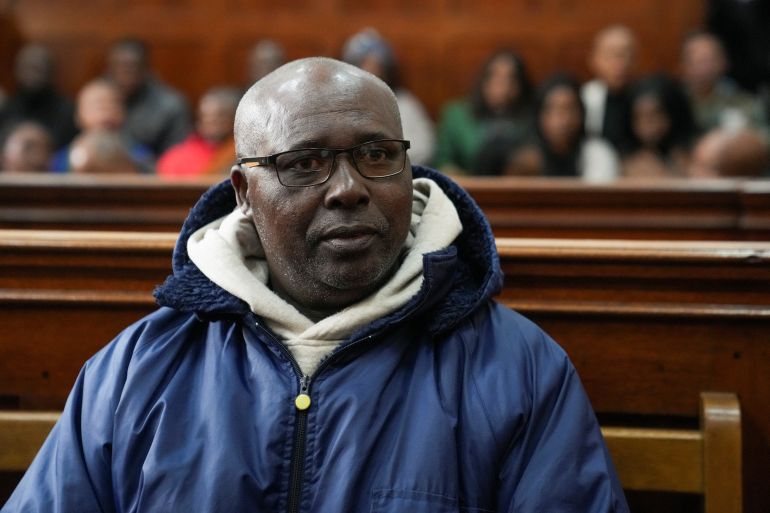Rwandan genocide suspect faces more charges in South Africa
The suspect now faces 54 separate charges in South Africa relating to fraud and immigration offences, up from five previously.

South African prosecutors on Friday significantly increased the number of charges being brought against Rwandan ex-police officer Fulgence Kayishema, who is wanted internationally for suspected participation in Rwanda’s 1994 genocide.
Kayishema, 62, is accused of taking part in the killing of 2,000 people sheltering inside a Catholic church in one of the 1994 Rwandan genocide’s bloodiest episodes.
Keep reading
list of 4 itemsICJ updates: Nicaragua’s case against Germany over Israel’s war on Gaza
The judicial legacy of the Rwandan genocide: 30 years of double standards
Rwanda genocide: ‘Frozen faces still haunt’ photojournalist, 30 years on
On the run for two decades, he was arrested on May 24 under the false name of Donatien Nibashumba on a grape farm in Paarl, 60km (35 miles) north of Cape Town where, according to a prosecutor, refugees working there gave him up.
He now faces 54 separate charges in South Africa relating to fraud and immigration offences, up from five previously, prosecutors spokesman Eric Ntabazalila said outside a Cape Town court.
Some of the local charges could see Kayishema imprisoned for up to 15 years, said Ntabazalila.
Kayishema had been a fugitive from justice since 2001 when the International Criminal Tribunal for Rwanda (ICTR) indicted him for genocide for allegedly ordering the massacre of 2,000 people hiding in the Nyange Catholic Church.
He denied any involvement during a court hearing on May 26, though said he was “sorry” for the 1994 killings.
South Africa’s National Prosecuting Authority (NPA) alleged that Kayishema used a false identity to apply for asylum and refugee status in South Africa. Kayishema has not responded in court to the South African charges.
The case was adjourned to June 20 to allow Kayishema’s defence team to consult, at which point he could apply for bail.
Kayishema is also expected to face extradition to Rwanda to be tried over the ICTR genocide indictment, but those proceedings have yet to begin, Ntabazalila said.
An estimated 800,000 ethnic Tutsis and Hutu moderates were killed during Rwanda’s genocide, orchestrated by an extremist Hutu regime and meticulously executed by local officials and citizens in the rigidly hierarchical society.
Kayishema’s arrest left only three fugitives indicted by the international tribunal whose whereabouts remain unknown.